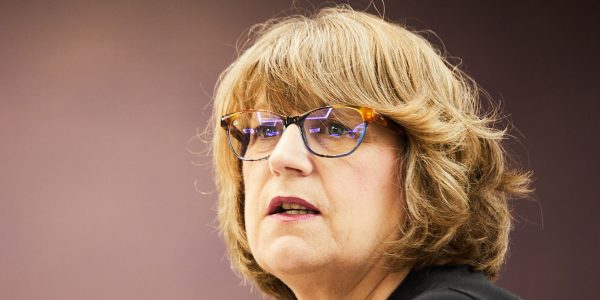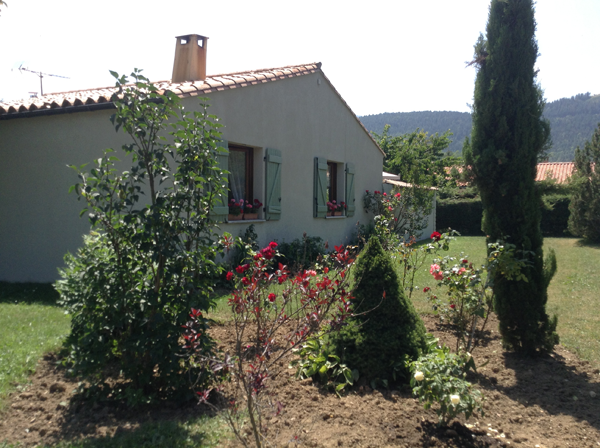Where are you from? The second question that anyone is likely to ask you, after your name and before your occupation. So it is surprising that within public relations we rarely, if ever, consider the importance of place. As Edward S. Casey writes in his pioneering study of the importance of place in people’s lives:
Where we are – the place we occupy, however briefly – has everything to do with what and who we are (and finally that we are).
In a world where globalisation and online communications have opened up our vistas and life experiences, perhaps we think that a sense of place is not important. Within marketing, one of McCarthy‘s classic 4Ps is place – but that is a focus on distribution channels and strategies, not consideration of the psychology of place. It doesn’t consider how place affects our identity, our feelings, our behaviour – which are important aspects particularly for public relations.
Today my mother has left her home of the past 12 years – a small French village called Roquefeuil. Half way up the Pyrenees, on the plateau, Le Pays de de Sault (land of the pine trees) which is renowned for its potatoes. It was a home found by chance by my parents when they decided to move abroad after retiring. Then it was a just a house – or as one young French girl recently called it, a bijou maison. I like that – a small, delicate jewel or trinket.
Over the years, my parents planted a garden in a very English way. They were “les rosbifs” of the village, but this was used affectionately not as an insult. The local villagers took my parents to their heart, and after my dad’s death in France nearly six years ago, my mother has become embraced and welcomed within the local community. She is more a part of the place than many nationals who only visited periodically.
Roquefeuil is also a part of my sense of place for lots of different reasons. And it is about sense – the feel, look, smell, sound, taste and whole experience of being there is something I can recall and relive at any time. It is a lovely open place with a huge sky and real weather – hot in Summer, snow in Winter, full of wind and leaves in Autumn and coming alive in Spring. It has a history that is full of stories, a present that is a lively community and perhaps an unknown future in the way of many French villages, although I am confident it will survive. My mum’s house has been bought by a young French couple who work in the area rather than by incomers or holiday residents.
Les Bascules, as her house is called, is also a final resting place for many of our much loved pets, cats and dogs, whose lives are entwined forever with Roquefeuil. Some were born there, some loved to visit, some only went there after death. Their corner of a foreign field.
Where were you born? – is another of those important questions used to situate us in life, even if only when completing forms. A discussion of place is commonly used to make connections with others, to build relationships, to discover how we are similar, or different. Benson claims the self is a locative system, observing: we cannot imagine being nowhere.
But place is more than simply sticking pins into an interactive online map or checking into a location-based social networking site. Place carries meaning for us as individuals, and as groups – people affiliate themselves with places as fans of football teams, or through the names they use in identifying themselves as coming from somewhere, and others use to insult them. The use of Okies in Steinbeck’s Grapes of Wrath, being one example. A book that uses place as a central character in its story of dispossession, migration and social change.
This wider societal context of place is one reason why it is important in public relations – look at the current issues in Crimea and this year’s Scottish referendum as two salient examples of where place is a critical aspect of the public debate. We see place in relation to where organisations are located, and any change in this can be hugely contentious. The nature of the buildings an organisation chooses to occupy convey something about its reputation – modern or historic, city-based or rural, etc.
For public relations itself, it tends to be dominant in cities – at least that’s where the major consultancies choose their place. This is part of its image, particularly in attracting young practitioners who may be looking for an exciting career. They also commonly crave travel in their careers, and increasingly opportunities to gain international experience, as Katie Sheppet shared on a recent series of Public Relations Conversation posts.
In our work, if we are seeking to influence or engage people, we need to understand the place where they are located. Not just in terms of targeting communication channels or researching geodemographics, but how the places where they live, where they work, rest and play, reflect on who they are as individuals and communities, and help us understand what they care about.
Today I care about my family members – literally my public relations – my mum, my brother and my nephew who are loaded up, like Steinbeck’s Joad family, and on the road heading north up through France and back into England tomorrow morning. I have driven that route dozens of times and each mile is in my head, so I can empathise and vicariously experience their journey, especially the parts where the memories are strongest. She is ‘coming home’, and we will find her a new place to live – another family place – which will become important in our narrative and our everyday interest if it is in the news.
Place is something I think we should consider further in public relations, to understand its symbolic meaning, how place plays a role in being powerful – and powerless if we don’t have a home or a job, for example. The actions of the protest movement Occupy can be related to the places they chose to demonstrate and the responses of those who felt their places were being invaded. We can use ethnographic research to get a greater understanding of society and culture by studying ‘the naturally occurring setting’ in which our communications and other public relations activities take place.
So au revoir Roquifeuil – you will forever be in my heart.


I remember when I first got to know you (through your blog), you would sometimes write about your parents’ adventures and narrative (of the every day variety) in Roquefeuil. And I seem to recall that your father would even occasionally comment. (If not on this blog, I recall both your parents sending the occasional response-to-my comment message via you and email.)
Wishing you and yours (especially your mum) many more “heartfelt” (public relations) places in the years ahead.